Mark Carney seemed revolutionary enough in 2013 when he became the first non-British citizen to be appointed governor of the Bank of England. But the 53-year-old has since had to contend with a much greater upset: the U.K.’s vote to leave the European Union. Now he reveals that he spends half his time preparing the financial system and economy for Brexit, which takes effect in March. Born in Canada’s remote Northwest Territories and educated at a public school in Edmonton, Carney graduated from Harvard and Oxford before working at Goldman Sachs Group Inc. and the Canadian finance ministry. In early 2008 he became the eighth governor in the Bank of Canada’s history, winning praise for his quick reaction as the financial crisis developed. He succeeded Mario Draghi as chairman of the Financial Stability Board (FSB) in 2011, becoming the point man on global financial system reform. At the Bank of England, Carney has juggled Brexit, negotiating new regulatory standards, and adapting the 324-year-old institution to its expanded supervisory responsibility. As the BOE’s 120th governor, he says some disruption was in order. “You don’t need an outsider all the time, but at the time it helped.”

Stephanie Flanders: Five years. If you think back to starting your tenure in this building, then you were mostly known as the guy with the star résumé who was going to be the first non-national governor of a major central bank. Remembering your expectations on that first day, how has the experience measured up?
Mark Carney: It has exceeded my expectations in terms of the quality of the organization, the importance of the issues, both the intellectual and practical policy challenges.
My expectation coming in was that the platform here would help increase the ambition and effectiveness of international [financial] reforms because of the expertise that’s present in the organization, the importance of the U.K. financial system, and because many of the ideas for not just fixing the problems that caused the crisis but potential solutions for a more resilient system had been generated in the U.K. I could help with that, and obviously I had the advantage of coming in as still chair of the FSB. It has very much met or exceeded expectations in all those respects.
Of course it’s hard to go from concept to agreed global policy and then have that implemented, but I think—others will judge—relative to my expectations it’s been pretty faithfully implemented.
Secondly, it was about securing the recovery here, which at the time I took the position [Carney was appointed in November 2012] hadn’t really begun, or at least it didn’t appear on measured statistics. By the time I showed up [Carney started in July 2013] it certainly had begun, and the question was how to embed that.
This story is from the {{IssueName}} edition of {{MagazineName}}.
Start your 7-day Magzter GOLD free trial to access thousands of curated premium stories, and 9,000+ magazines and newspapers.
Already a subscriber ? Sign In
This story is from the {{IssueName}} edition of {{MagazineName}}.
Start your 7-day Magzter GOLD free trial to access thousands of curated premium stories, and 9,000+ magazines and newspapers.
Already a subscriber? Sign In

See Which Countries Are Falling Behind On Climate Change
Under the Paris Agreement, 190 countries and the European Union pledged to take steps to hold the global temperature rise to less than 2C (3.6F) from preindustrial levels—and preferably 1.5C.
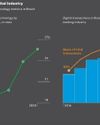
Billionaires Vie for the Future of Brazilian Finance
An escalating battle between two billionaires is upending the financial community in São Paulo, Latin America’s wealthiest city.
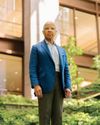
Ford Foundation's Darren Walker: ‘We Have to Get Uncomfortable'
DARREN WALKER, 62, disrupted his Wall Street life more than 25 years ago when he left what is now UBS Group AG to volunteer at a school and eventually pursue a career in community development and philanthropy. Since 2013 he’s been at the pinnacle of the philanthropic world as president of the Ford Foundation, created by the family of automaker Henry Ford during the Great Depression to advance human welfare.

Fueling the Ener Transition
I MAY BE BIASED, but some of the most important research and data on the Bloomberg terminal lies in one of its lesser-known functions: {BNEF }

Dig Into Analysts' Estimates for Disruptive Companies
THE PANDEMIC ERA generated a whole wave of disruptive companies as it accelerated the introduction of new products and services in areas including artificial intelligence, digitization, electronic payments, online meeting platforms, and virtual currencies.
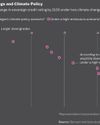
Climate Risks Come for Sovereign Credit
FOR YEARS climate scientists have warned about the ferocious wildfires and hurricanes that are now overwhelming many communities. Today alarms are ringing about a related financial danger: risks lurking within government bonds, the biggest part of the global debt market.

Responsible-Investing Pioneer Lydenberg Says ESG Needs An Upgrade
STEVE LYDENBERG’S passion for social change was inspired by anti-Vietnam War demonstrations, consumer boycotts, and the movement to divest from apartheid South Africa. But he didn’t take to the streets. Instead, Lydenberg turned to the world of finance to help catalyze societal change.

Engine No. 1's Grancio: ‘People Will Appreciate an Economic Argument'
ENGINE NO. 1 sent shock waves across corporate America in May when the fledgling investment firm won a boardroom battle with Exxon Mobil Corp., securing three seats on the oil and gas giant’s board after purchasing only about $40 million of its stock.
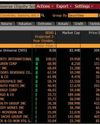
Find Out Which Companies May Ramp Up Payouts After Covid
AS THE PANDEMIC DISRUPTED business last year, many companies cut or suspended dividends. Which will boost their payouts when economies pick up again?
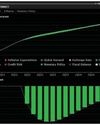
Get Into the Minds of Central Bankers as They Navigate Shocks
HAVE YOU EVER WONDERED how central bankers forecast the impact of shocks on the economy?